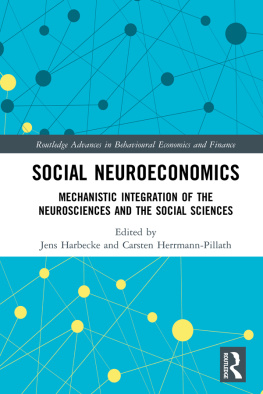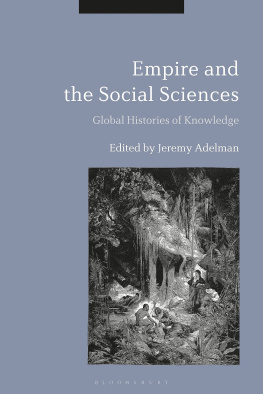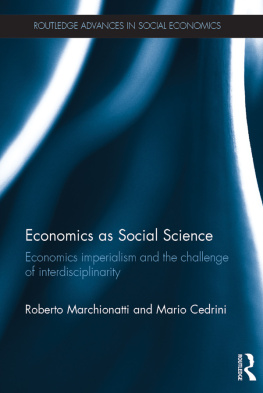Social Sciences
Social Sciences: A Dying Fire
BY
KLBER GHIMIRE
United Kingdom North America Japan India Malaysia China
Emerald Publishing Limited
Howard House, Wagon Lane, Bingley BD16 1WA, UK
First edition 2021
Copyright 2021 Klber Ghimire. Published under exclusive license by Emerald Publishing Limited.
Reprints and permissions service
Contact:
No part of this book may be reproduced, stored in a retrieval system, transmitted in any form or by any means electronic, mechanical, photocopying, recording or otherwise without either the prior written permission of the publisher or a licence permitting restricted copying issued in the UK by The Copyright Licensing Agency and in the USA by The Copyright Clearance Center. Any opinions expressed in the chapters are those of the authors. Whilst Emerald makes every effort to ensure the quality and accuracy of its content, Emerald makes no representation implied or otherwise, as to the chapters suitability and application and disclaims any warranties, express or implied, to their use.
British Library Cataloguing in Publication Data
A catalogue record for this book is available from the British Library
ISBN: 978-1-80117-042-0 (Print)
ISBN: 978-1-80117-041-3 (Online)
ISBN: 978-1-80117-043-7 (Epub)
Contents
Praise for Social Sciences: A Dying Fire
Praise for Social Sciences: A Dying Fire
The social sciences are caught in an internecine web of internal debates, making the enterprise largely irrelevant to the vast majority of human life. This fact is brilliantly captured in A Dying Fire, in which Professor Klber Ghimire insightfully describes the causes and consequences of the social sciences collective navel-gazing. Yet he does so not as a radical, eclectic project, but as an attempt to generate critical thinking essential to ensure continued relevance of these fields of study. De-centering Europe and North America is a vital step toward re-centering the value of the social sciences.
Matthew F. Filner, Professor of Political Science and Faculty Association President, Metropolitan State University, Minnesota, USA.
This book digs deep in the history of social sciences and critically assesses their present uncertain positions. Its especially important contributions and cannot be found easily elsewhere are the reflections and analysis of the social sciences in Asian universities.
Vesselin Popovski, Professor of Law and Vice Dean, O.P. Jindal Global University, Haryana, India.
This is a highly original interdisciplinary critique of social sciences. The book is most interesting and important for academics, students or anyone who want to rethink about the current nature of social sciences learning.
Xiaoyuan Shang, Professor of Social Policy, Beijing Normal University, China.
This book persuasively explains why the social sciences should move beyond the narrow ideas of scientism, empiricism and professionalism toward a broader concept of learning and comprehensive thinking, and further conveys astoundingly deep knowledge about the commonalities and differences in the notion of learnedness and educational traditions of Western and Asian societies.
Jin-Wook Shin, Professor of Sociology, Chung-Ang University, Seoul, South Korea.
Chapter 1
Introducing the Key Elements of Crisis
Relying on our own knowledge and not making use of the knowledge of others, we have difficulty understanding the multifarious affairs of the world All people have something they individually have gotten and things they have learned for themselves. Among ten people they have the knowledge of ten. Among one hundred people they have the knowledge of a hundred. It is good to take and use the strengths of others. No matter how talented the person, in the past or the present, it is difficult for him to know everything himself.
Ekken Kaibara (16301714), Japanese neo-Confucian philosopher.1
Long-term historical analyses indicate discontinuities, bounces and new evolutions in cultural and intellectual attainments in human societies. The rise of Europe, a small cape of the Asian continent, to paraphrase the French poet and philosophical writer Paul Valry has over the last two centuries or so been an unparalleled happening in modernisation and economic growth, reshaping social conditions internally (together with its offshoot countries, namely the United States, Canada, Australia, New Zealand), but also markedly affecting the structure and dynamism of many other human societies. But is not this precisely one of such variable historical outcomes that occurred in Europe and that the past gains may be difficult to sustain in the face of deep-rooted internal ambiguities within this evolution and new realities of globalised markets, technology, demographic mobilities, rising levels of communication and cultural exchanges?
Indeed, Valry points out that even the greatest achievements of the past civilisations have proved perishable by accident (e.g. a major war) and that Europe of 1914 had already reached the limits of modernisation. It is here he recalls that Europe is only a small extension of Asia with limited natural resources, but what is, nevertheless, most precious to him is the quality of man and the European mind, thereby making Europe the precious part of the earthly universe, the pearl of the sphere, the brain of a vast body (Valry, 1919, pp. 331337). According to this line of reasoning, what counts are not just the European successes in education, technology, science, literature, arts and civility, but also its select standing among different population groups and cultures. But can these archetypical, preconceived enlightenment and self-importance accounts endure indefinitely? Clearly, many illustrious ideas produced in Europe (later together with North America), some of which are seemingly assumed to be universal, are now openly questioned, even considered suspect.
What interests us the most in this work is the role and positioning of todays social sciences in this historical occurring. The essential character of the social sciences, developed during the nineteenth century, for the most part, is that they are born, so as to say, out of the European womb, at the height of Europes legend building. This has ipso facto conditioned social sciences how they are structured, fostered, as well as in their ability to create and transfer a thorough and unbiased social knowledge. Considering this, it can perfectly be assumed that the valet would be serving his master, but what is significant is that even among intellectuals with most probing and daring ideas and observations, the European historical experience has remained the prime frame of reference, as if, ultimately, the long and diverse paths and realisations of other human societies mattered little. Thus, voluntarily or involuntarily, the function of the social sciences has been to partake in these grand European characterisations, with the conception of the world being considerably narrowed, if not completely distorted. What is more troublesome in this regard is that this state of affairs continues to persist today and even thriving in certain cases. Owing to this, the historical or contextual setting is considered in this book to be as an element of central importance to illustrating the various problems and ambiguities currently facing the social sciences, including their future evolution.








